 Don’t know if I mentioned this, but I have been watching “Decisive Battles,” a History channel show that uses “videogame technology” to show ancient conflicts. It’s circa 2001, so the animations look quite crude. A reminder how fast these things get better - although Halo was pretty smooth for 2001. A shot:
Don’t know if I mentioned this, but I have been watching “Decisive Battles,” a History channel show that uses “videogame technology” to show ancient conflicts. It’s circa 2001, so the animations look quite crude. A reminder how fast these things get better - although Halo was pretty smooth for 2001. A shot:

It's the Purple Pajama Army!
The soldiers are all identical. They have basic movements, repeated over and over. The commander, regardless of the skin they’ve slapped on him, does the same thing: rides around and points his sword. No one ever does anything after he’s pointed his sword, which would seem to be a “go” signal. When the armies clash, bodies are frequently thrown up into the air. Saw a horse fly up in the air.
But you learn things. I knew that Crassus died on an ill-advised military campaign. Never could figure that guy out. Had all the money in the world - we should say “rich as Crassus” instead of Croesus, particulary since the former made his money in modern ways - real estate, speculation, and so on. But he burned for military victory, so he could be the equal of Caesar and Pompey Magnus. So he bought an army and marched east. Got his head handed to him. Well, no; got his son’s head handed to him. When his head was removed by the victors, they carried it home. And here’s what I learned: when the victorious king got home he took the head to a play, the story goes, and the actor on stage was talking to a severed head. The king tossed him Crassus’ noggin. From the richest man in the world to a stage prop. Sic transit, etc.
Wikipedia:
The account given in Plutarch's biography of Crassus also mentions that, during the feasting and revelry in the wedding ceremony of Artavazd's sister to the Parthian king Orodes II's son and heir Pacorus in Artashat, Crassus' head was brought to Orodes II. Both kings were enjoying a performance of Euripides' Greek tragedy The Bacchae and a certain actor of the royal court, named Jason of Tralles, took the head and sang the following verses (also from the Bacchae):
We bring from the mountain
A tendril fresh-cut to the palace
A wonderful prey.
Crassus' head was thus used in place of a prop head representing Pentheus and carried by the heroine of the play, Agave.
He wanted glory because Pompey had stolen his victories in the slave rebellion, by the way. Pompey was a vain ass. It’s no wonder Caesar outflanked them all.
Who’d want to sit down with Crassus today? Who’d want to have supper with Pompey and listen to his bluster and congratulate himself? Who wouldn’t want to spend an evening drinking wine and eating lark’s brains with Caesar? Well, never mind the lark’s brains, but talking, yes.
The main thing you take away from the “Decisive Battles” series: huge chunks of land and broad deep territorial disputes were solved with relatively small numbers of men, and B) war was hideous business. It’s all hacking and stabbing. Oh, one more thing: the Parthians - the ones who slaughtered Crassus’ legions and decapitated him - had a special tactic. The cavalry was adept at shooting arrows at full gallop, but they could also turn around and fire as they rode away. This was known as the Parthian Shot, and the host of the show says this led to the term “Parting Shot.”
Eh? I thought that seemed too convenient, too neat. This page agrees.
“Parthian Shot” is an excellent name for the last piece in a magazine.
By the way, one of the experts interviewed in the series is Victor Davis Hanson, which was something of a jolt; just talked to him the other day. Odd to see a guy with whom you walked around a cruise ship after dinner popping up after a crudely animated sequence of Romans stabbing a clone army of German barbarians.
In unrelated news, I half-watched “The Fat Man,” a William Castle masterpiece. Budget: sixty-seven dollars. It’s about a guy who solves crime while being fat. It’s different from Nero Wolfe, inasmuch as he’s not an orchid-loving recluse whose sole concession to the crudities of modern life is lip-smacking relish over cold beer. Plus, he’s a bit rakish:
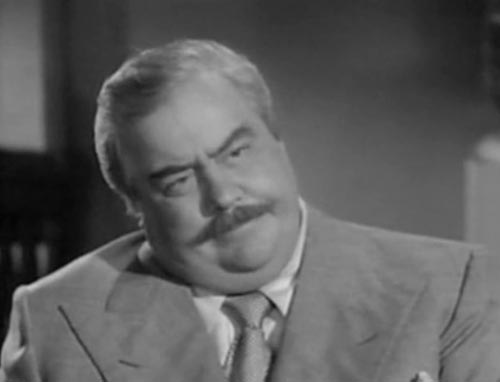
Then all of a sudden it goes FULL CLOWN.
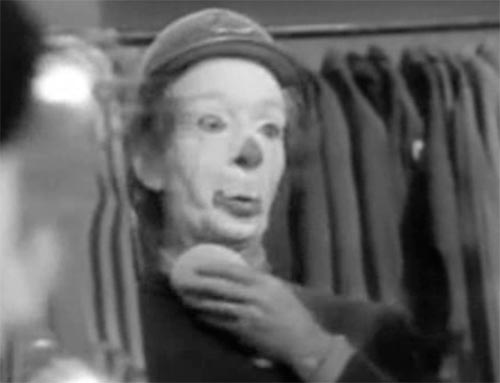
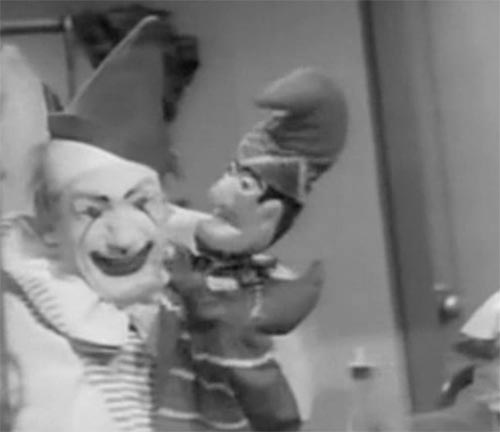
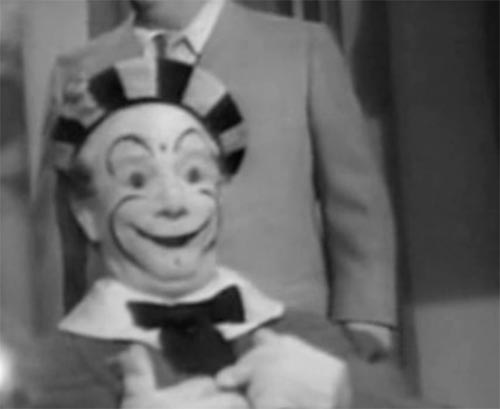
All of which is a setup for an introduction of Emmett Kelly, in his first motion picture role!
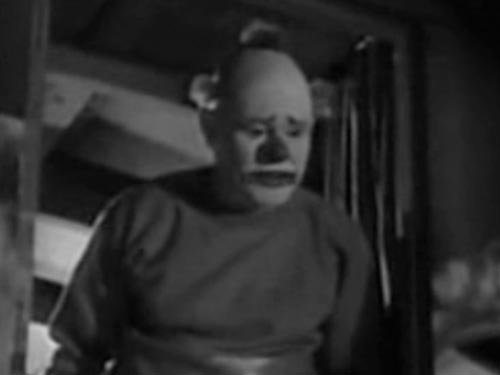
It also has Rock Hudson. Why do I mention this? Because it's the 1950 equivalent of a Batman movie. Sort of. The Fat Man was a popular radio show, based on the works of Dash Hammett.
Is there a sultry dame? Brother, is there:
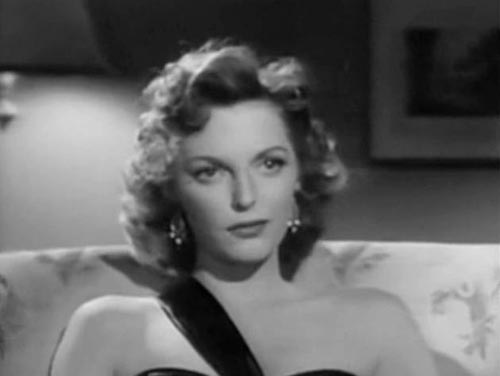
Jack Webb's wife.
Additional Wards 1961! See you around, and have a grand weekend.

